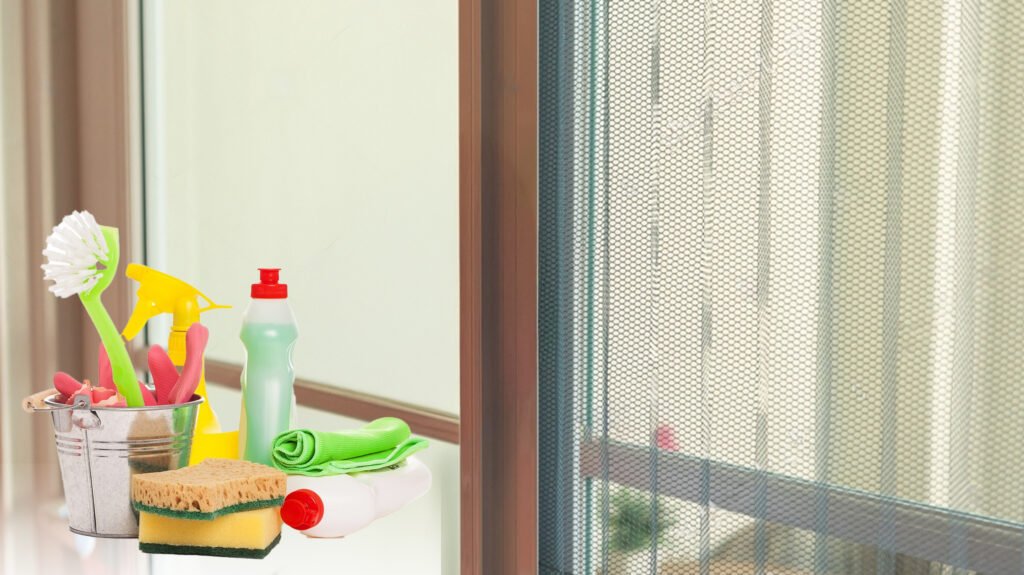Why is Cleaning Mosquito Screens Crucial?
Maintaining and caring for your mosquito screens is essential to ensure that these effectively keep insects out and maintain their longevity.
Whether it is mosquito screens for windows, safety nets for balconies, or insect nets for doors, proper maintenance is crucial.
In this blog post, we will walk you through the best practices for cleaning, repairing, and preserving various types of mosquito screens to keep your living space safe and comfortable.Benefits of Proper Maintenance
Proper maintenance of your mosquito screens is essential to ensure their longevity, effectiveness, and overall performance. By following a few simple steps, you can keep your screens in top condition and enjoy their benefits for years to come.
- Extended life Span: Regular maintenance can significantly prolong the life of your mosquito screens.
- Improved Performance: Well-maintained screens are more effective at keeping pests out.
- Enhanced Aesthetics: Clean and well-maintained screens can enhance the appearance of your property.
- Reduced maintenance costs: Regular cleaning and inspections can help prevent costly repairs or replacements.
Material-Specific Cleaning
When it comes to maintaining your mosquito screens, it is important to consider the type of material they are made of. Whether it is fibreglass or aluminium screens, each material requires specific care to ensure its longevity.
Don’ts of cleaning mosquito screens
- Bleach: Avoid using bleach or chloride to clean mosquito screens. (It is really tempting, we all know!!).
- Abrasive Brushes: Avoid using hard-bristled brushes like garden brushes or vacuum cleaner brushes. These can scratch the frame or tear the mesh.
- Harsh Chemicals: Avoid using acidic, alkaline, or other harsh chemicals, such as lemon or vinegar. Opt for gentler cleaning solutions instead.
- Salt Water: Avoid using salty water, as it can leave stains due to its high iron levels.
- Pressure washing: Avoid using a pressure washer, as it is too harsh and causes damage.
How to Clean Fibreglass Mosquito Screens?
Fibreglass screens are durable and resistant to corrosion, making them ideal for windows and doors.
- To clean fibreglass screens, use a mild detergent and water to gently scrub away any dirt or debris.
- Avoid using abrasive materials that could damage the screen’s surface.
How to Clean Aluminium Mosquito Screens?
Aluminium screens are known for their strength and durability. To clean aluminium mosquito screens, combine a few tablespoons of dish soap with a gallon of water.
- You can also use one part vinegar to three parts water.
- Spray the screen with the solution and gently scrub it with a soft-bristled brush.
How to Clean Stainless Steel Mosquito Screens?
- A dry paint brush is fine for the dusting and maintenance of a dusty stainless steel mesh screen.
- Use a slightly damp towel to wipe the screen repeatedly until all dust and marks are removed.
Can I use a vacuum cleaner to clean mosquito screens?
While a vacuum cleaner can be used to remove loose dirt and debris from mosquito screens, avoid using a brush attachment that is too hard, as it may damage the mesh.
How can I prevent mosquitoes from breeding behind my mosquito screens?
To prevent mosquitoes from breeding behind your screens, ensure that there are no standing water sources, such as flower pots or clogged gutters, near your property. Regularly inspect your screens for any holes or tears that mosquitoes could exploit.
How can I prevent my mosquito screens from becoming damaged?
To prevent damage, avoid using harsh chemicals, abrasive materials, or excessive force when cleaning your screens. Inspect them regularly for any signs of wear and tear, and repair any damage promptly.
What are the best cleaning solutions for mosquito screens?
A mild soapy water solution or a mixture of vinegar and water is generally effective for cleaning mosquito screens. Avoid using harsh chemicals that can damage the screen material.
How should I clean mosquito screens with stubborn dirt or grime?
For stubborn dirt, you can use a soft-bristled brush and a slightly stronger soapy water solution. Gently scrub the screen, taking care not to damage the mesh.
If I am replacing my insect screens with new screening products, what spline size should I use?
If you don't have a sample of your old spline, you will need to determine the size based on the product being installed and the screen frame's spline groove. Measure the width of the spline channel or groove on the screen frame, and then choose a spline that is one size smaller for fabrication.
Which products are ideal for areas with high humidity or tropical climates?
Fibreglass screens, sun control screens, TuffScreen, and PetScreen.
What type of mosquito screens offer the best visibility or view?
Elite Screen and SeeVue offer the clearest view and the best viewing experience. BetterVue provides a clearer view than standard fibreglass or aluminium screens.
FAQ Source: https://www.phifer.com/screening/faq/
Phifer’s Water Shed Technology uses a cutting-edge hydrophobic coating that makes the screen highly water-resistant. This technology is found in a variety of products, including upholstery, clothing, marine applications, food packaging, cookware, and cell phones. Hydrophobic surfaces, like those with Water Shed Technology, and makes it harder for substances to stick.
Info source: https://www.wholesalescreensandglass.com/phifer-insect-screen-water-shed-technology.html

